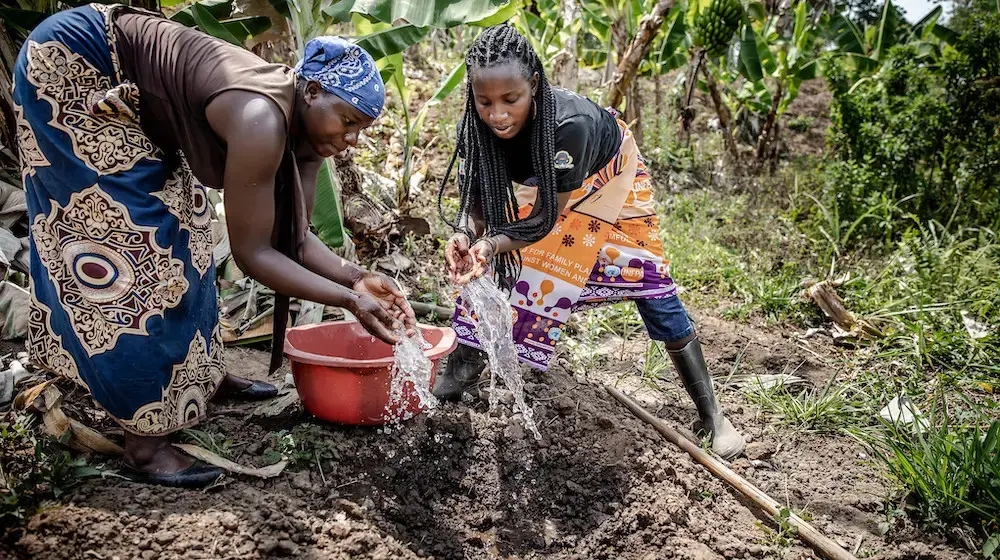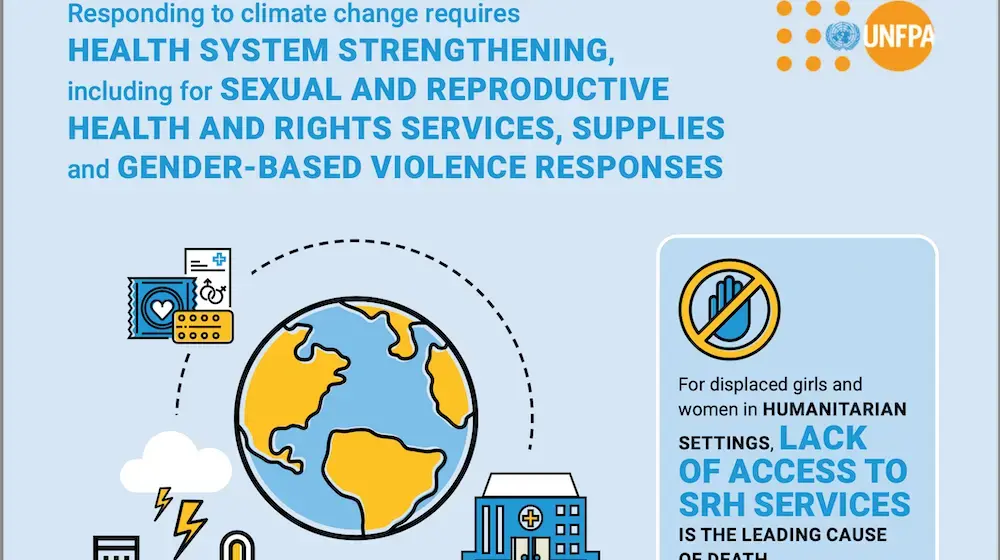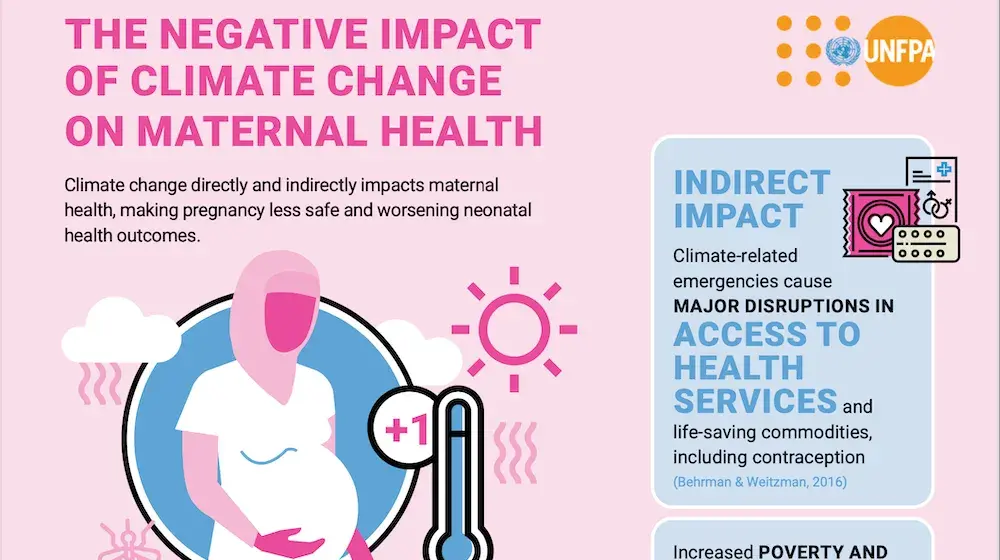
JOHANNESBURG, South Africa, 28 July 2021—From changing temperatures and weather patterns to extreme storms and rising sea levels, the vulnerability of women and girls across the world is worsening steadily.
It is highly problematic that during climate-induced natural disasters, essential health services including sexual and reproductive health services are often overlooked, with staggering consequences - a rise in unintended pregnancies, higher risk of maternal death, and increases in child marriage and gender-based violence (GBV).
“When a natural disaster strikes, a displaced 14-year-old cannot go to school. Her parents might marry her off to make ends meet, and she may become pregnant or infected with HIV, or experience violence at the hands of an older partner. Making these connections and integrating our responses is therefore paramount to overcoming these challenges, and to building healthy and resilient communities,” said Dr. Julitta Onabanjo, Regional Director for UNFPA East and Southern Africa.
To understand the context and existing gaps better, UNFPA, the United Nations sexual and reproductive agency, in collaboration with Queen Mary University of London, undertook a review of key climate change documents, including Nationally Determined Contributions (NDCs). The review, which covered 50 countries, assessed how issues of gender and health, including sexual and reproductive health and rights (SRHR), have been included in national climate action frameworks, plans and strategies.
The findings of this review, titled Sexual and reproductive health and rights in national climate policy: A review of 50 Nationally Determined Contributions (NDC) documents, are crucial as they reveal critical gaps in the national climate policies of countries and provide guidance on how these gaps can be addressed.
“SRHR is fundamental to achieving good health and gender equality, and presents an important element of developing resilience to climate change. Only 6 of out of the 50 NDC documents mention the impact of climate change on SRHR issues or proposed adaptation measures to respond to the impact of climate change on women and girls,” the study reveals.
The integration of SRHR into national climate policies is a central component to meeting the goals of the Paris Agreement on gender-responsive climate action and stands as one of the many steps UNFPA, in collaboration with governments and partners, is taking to ensure that women, adolescent girls, and youth livelihoods and wellbeing is protected as countries strive to meet their climate commitments.
“We have the opportunity to advance women’s rights and choices. In building resilient communities, we must also ensure women’s and girl’s rights, choices, and agency,” said Dr. Onabanjo.
Sexual and reproductive rights are essential in and of themselves but take on renewed urgency in the face of an unstable and unpredictable climate. A cornerstone of resilience, SRHR enables people, couples and communities to better realise their human rights, make choices that best suit their personal circumstances, and protect themselves and their communities from harm.
UNFPA strongly believes that with a collective effort, we can move with speed to advance SRHR, gender and targeted climate actions for the benefit of women and girls, young people and the planet.
For more details, view the report, Sexual and Reproductive Health and Rights in National Climate Policy: A review of 50 Nationally Determined Contributions (NDC) Documents.
For more information, or to request interviews, contact:
Daisy Leoncio, leoncio@unfpa.org, WhatsApp: +1 347 4919154
Lindsay Barnes, barnes@unfpa.org, WhatsApp: +27 83 2773257
++++
UNFPA
UNFPA, the United Nations sexual and reproductive health agency, delivers a world where every pregnancy is wanted, every childbirth is safe and every young person's potential is fulfilled. UNFPA calls for the realization of reproductive rights for all and supports access to a wide range of sexual and reproductive health services, including voluntary family planning, maternal health care and comprehensive sexuality education.





